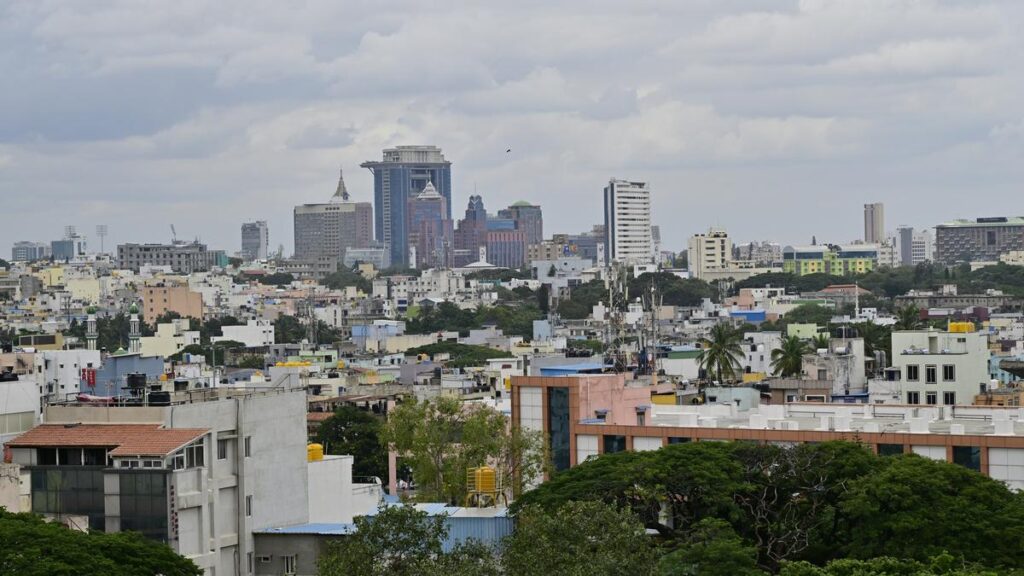The story so far
As of May 16, 2025, Bengaluru has undergone a significant administrative transformation with the official establishment of the Greater Bengaluru Authority (GBA), replacing the Bruhat Bengaluru Mahanagara Palike (BBMP) as the city’s primary governing body.
In a move aimed at revamping the governance of one of India’s most rapidly growing urban centers, the Government of Karnataka has formally established the GBA, replacing the long-standing BBMP. This reform, rooted in the Greater Bengaluru Governance Act, 2024, came into effect on May 15, 2025, ushering in a new era in the administration of Bengaluru city.
Why was there a need to replace the existing BBMP structure?
The BBMP that came into being in 2007 struggled to keep pace with the city’s explosive growth. Originally formed by merging the core city with surrounding municipal councils, the BBMP eventually covered over 709 square kilometers and governed more than 10 million residents. Despite its vast responsibilities, the BBMP faced persistent criticism for inefficiency, lack of coordination among civic bodies, and inadequate infrastructure planning.
From traffic snarls and potholes to flooding, garbage management, and water shortages, Bengaluru’s urban woes were often attributed to fragmented governance and poor inter-agency coordination. Multiple civic bodies —like the Bangalore Development Authority (BDA), Bangalore Water Supply and Sewerage Board (BWSSB), Bangalore Electricity Supply Company (BESCOM), and Bangalore Metro Rail Corporation Limited (BMRCL) — operated independently, creating silos and administrative gridlocks.
The GBA aims to fix these systemic inefficiencies by creating a unified governance structure that can deliver integrated planning and services.
What exactly is the Greater Bengaluru Authority?
The GBA is a new urban governance body created to oversee, coordinate, and manage the affairs of India’s tech capital in a more cohesive and efficient manner. The formation of the GBA is guided by the Greater Bengaluru Governance Act, 2024.
Under the new system, the GBA will replace the BBMP as the overarching city governance body, coordinate across departments and civic agencies, ensuring unified planning and execution, oversee regional divisions of the city, with the plan to split Bengaluru into multiple municipal corporations for more localised governance and enhance transparency and accountability, with digital platforms and public dashboards for tracking civic services, said a member of Brand Bengaluru Committee, formerly known as Bengaluru Restructuring Committee.
What will be the structure and leadership of GBA?
The GBA will be headed by the Chief Minister of Karnataka as its Chairperson, with the Deputy Chief Minister serving as Vice-Chairperson. The authority will include top officials from various civic departments, urban planning bodies, and State agencies, ensuring that inter-agency collaboration is built into its structure.
An Administrative Officer will be appointed during the transition phase to ensure that essential city services continue without interruption.
The GBA will also absorb and work closely with other stakeholders, such as BDA (urban planning and land use), BWSSB (water supply and sewerage), BESCOM (electricity supply), BMRCL (metro rail and urban transit)2, BMTC (public bus transportation). This collaborative framework is designed to eliminate delays caused by agency silos and overlapping mandates.
Will BBMP continue to exist?
Yes, the BBMP will continue to exist for the time being. Although the Government of Karnataka has officially notified the GBA Act, the implementation process, including the division of BBMP into multiple smaller municipal corporations—possibly three to five—is yet to be completed.
Until this restructuring process is formally carried out and the new administrative bodies are established, the BBMP will remain the primary municipal authority for Bengaluru. During this transitional period, the BBMP will continue to function under the provisions of the BBMP Act, 2020. The current BBMP Chief Commissioner will also continue to serve in office and oversee the city’s administration until the new governance framework is fully operational.
How will division of Bengaluru work and what will the nature of multiple corporations under GBA?
One of the most significant changes under the GBA is the plan to divide Bengaluru into multiple municipal corporations. While the Act allows for up to seven corporations, current discussions point toward forming three to five.
Each of these corporations will manage local administration and delivery of services in its respective area, such as sanitation, road maintenance, waste management, and public health. They will report to and be guided by the overarching GBA.
This model is inspired by cities like London and New York, which have borough-based administrations working under a central authority. The goal is to bring governance closer to citizens, improve responsiveness, and ensure tailored solutions for different zones.
What are the issues involved in implementation and transition from BBMP to GBA?
While the law has taken effect, the transition from BBMP to GBA will be gradual and carefully managed. The BBMP will continue to function during the interim period until the new corporations are formally established and empowered.
A major focus during the transition is on continuity of services. From garbage collection and street lighting to water supply and emergency response, residents will not face disruptions.
Additionally, digital platforms are being developed to centralise services, complaints, and performance monitoring — aligning with the broader “Brand Bengaluru” initiative launched by the State government.
What have been the political reactions and public responses like?
The establishment of the GBA has been met with a mix of praise and scepticism. Supporters argue that the overhaul is long overdue and essential for a global city like Bengaluru.
But critics, particularly from the opposition BJP, warn that it could increase bureaucratic layers and lead to higher taxation without necessarily improving services. There are also concerns over centralisation of power and whether local elected representatives will have adequate say in decision-making.
The government, on the other hand, has promised that municipal elections will be held in the new corporations to preserve democratic accountability.
Published – May 18, 2025 09:00 am IST
Source:https://www.thehindu.com/news/national/karnataka/a-city-in-transition-from-bruhat-bengaluru-mahanagara-palike-to-greater-bengaluru-authority/article69582803.ece

